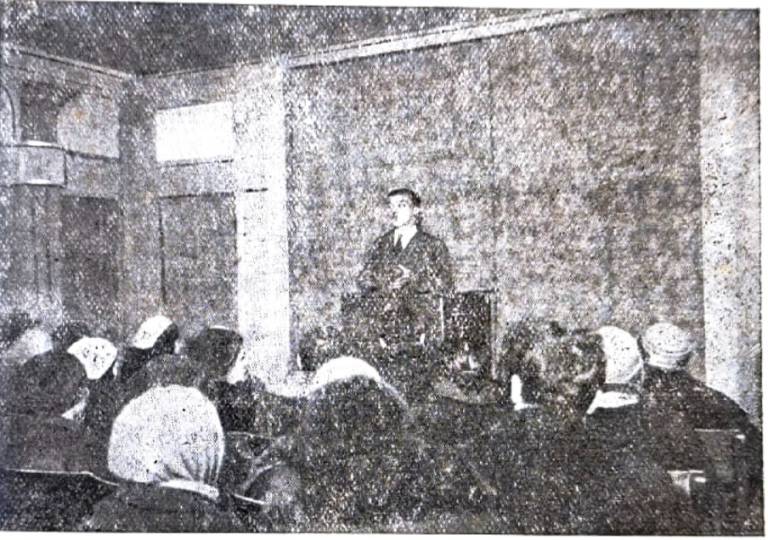Teaching Revolution Through Film
11 March 2024, 6:00 pm–8:00 pm

A SSEES Russian Cinema Research Groups seminar with Pavel Stepanov, University of Cambridge
This event is free.
Event Information
Open to
- All
Availability
- Yes
Cost
- Free
Organiser
-
SSEES
Location
-
Masaryk roomUCL School of Slavonic and East European Studies16 Taviton streetLondonWC1H 0BW
Teaching Revolution Through Film: Framing Historical Narratives in the Soviet Cinemas and Workers’ Clubs, 1920s - c. 1930
In 1924 the 13th Bolshevik Party Congress resolution declared cinema ‘a powerful tool of communist propaganda and enlightenment’ and launched a process of cinefication. In the same year Glavpolitprosvet started a longstanding publication project which provided cinemas and workers’ clubs with methodological brochures about films distributed across the USSR. Their aim was to support political workers with instructions and practical advice. The role of the ‘red commentator’ became fully developed by 1926, after the conference at the All-Union Central Council of Trade Unions introduced a resolution on the use of film in agitational work at the workers’ club. It required the screenings to open with ‘a brief introduction with an explanation of the significance of the film from a political-educational point of view’. From then on propagandists were in charge of establishing a multisensory ideological environment in the club and the cinema that would not only include their expository oral comments, but also ‘provide an assessment of [its] political and artistic qualities’.
The seminar will investigate the ways in which the instructional pamphlets facilitating the work of commentators and the perception of the audience framed screenings as multimedia history lessons. I argue that film-night activities played the role of mass pedagogy to teach the core narrative of early Soviet ideology – the inevitability and embeddedness in international history through revolution – predating the publication of the first history textbooks for schools and universities. By unpacking the prescribed instructions for the films about the world revolution and transcripts of discussions held among the audience and lecturers, I will demonstrate how the practice of introductory film commentary attempted to tackle the balance of revolutionary narratives of the centre and the periphery.
About the speaker:
Pavel Stepanov is a PhD candidate in Film and Screen Studies at the University of Cambridge, working under the supervision of Professor Emma Widdis. His doctoral project focuses on the pedagogical discourse of Soviet 1920-1930s films about uprisings set outside the Soviet Union. The research explores films produced in the studios of the centre, in Moscow and Leningrad, and studios of the republics, in Ukraine and Belarus. The project explores cinematic work, carried out in the centre, and in the republics, as part of a broad discursive range of educational practices about revolution. The research aims to explore the ways in which the medium of cinema was manipulated to become part of an interactive ideological pedagogy. Stepanov’s broader academic interests include Soviet interwar film, issues of cinematic and intellectual transfer, useful cinema, and film pedagogy.
Image credit: Iurii Iemelianov, Moskovskii Khudozhestvennyi Kinoteatr: Opyt Raboty (Moscow: Redaktsionno Izdatel’skii Sektor Rossnabbytkino, 1936)
 Close
Close

